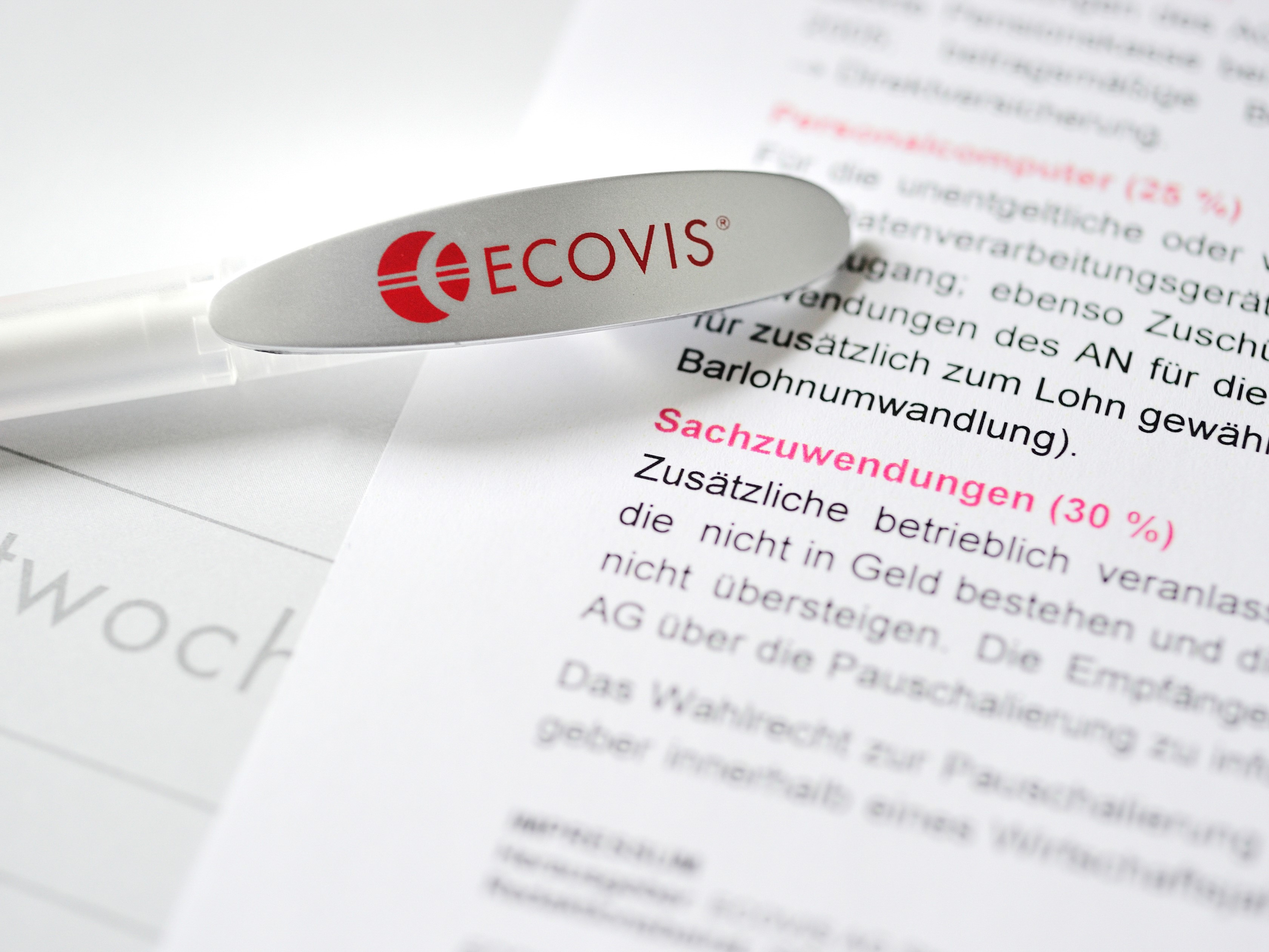The amendment to the Czech Labour Code of 2023. News in labour law from 1.10.2023
This year brought significant changes to Czech labour law through the amendment of the Czech Labour Code (hereinafter referred to as "LC"), which was published in the Czech Collection of Laws under the number 281/2023 Sb. (hereinafter referred to as "the Amendment"). This Amendment introduces several key measures aimed at strengthening workers' rights and adjusting the working environment in accordance with modern labour trends. In this article we will look at the main changes and innovations introduced by the Amendment.
Remote working and remote working agreements
One of the main objectives of the Amendment is to bring more sophisticated regulation of remote working than has been the case to date. Remote working has become an increasingly popular option for employees and employers thanks to the COVID-19 pandemic, and it was therefore necessary to create a legal framework to regulate this form of work.
As of 1 October 2023, according to the provisions of Section 317(1) of the LC, employers must conclude a written agreement on the performance of remote work if they agreed to do so with the employee. This agreement should include details of the place of work, reimbursement of expenses, working hours and other aspects of remote working.
The Amendment also allows employers to reimburse the costs associated with remote working under the new provisions of Section 190a of the LC. These costs can either be actually incurred and proven by the employee, set as a lump sum by the Czech Statistical Office or can be agreed in written agreement with the employee, even as no costs at all.
In addition, the Amendment to Section 317(3) of the LC provides that the employer has the right to order an employee to remote work only if a measure of a public authority according to another law so provides, and only for a strictly necessary period of time. The nature of the work performed must allow it to be carried out remotely and it must be ensured that the place where the work is to be carried out is suitable for the work.
Extension of the employer's information obligation
One of the key elements of the Amendment is the extension of the information obligation of employers. This extension concerns employment contracts, agreements to perform work (hereinafter referred to as "DPP") and agreements on work activity (hereinafter referred to as "DPČ").
Pursuant to Section 37(1) of the LC, employers are obliged to inform employees in writing of the following information:
a) the name and registered office of the employer, if a legal entity, or the name, surname and address of the employer, if a natural person,
b) a more detailed specification of the type and place of work,
c) the amount of holidays and the method of determining the length of holidays,
d) the duration and conditions of the trial period, if agreed,
e) the procedure to be followed by the employer and the employee in terminating the employment relationship and the duration and length of the notice period,
f) professional development, if the employer provides it,
g) the fixed weekly working time, the method of scheduling working time, including the length of the compensatory period if unequal scheduling is applied, and the extent of overtime work,
h) the extent of minimum continuous daily rest and continuous weekly rest and the provision of meal and rest breaks or reasonable rest and meal periods,
i) the wage or salary and the method of remuneration, the due date for payment of the wage or salary, the place and method of payment of the wage or salary,
j) collective agreements governing the terms and conditions of employment of employees and the designation of the parties to those collective agreements,
k) the social security body to which the employer pays social security contributions in connection with the employee's employment,
no later than within 7 days of the commencement of the employment.
These changes in the information obligation of employers are regulated for employees working on DPP/DPČ similarly in the provisions of Section 77a of the LC. The transitional provisions of the Amendment also take into account existing employees, who should also be informed of the additional list of information within 7 days of their request. The amendment also newly introduces in the provisions of Sections 37a, 77b of the LC the employer's information obligation towards employees sent to the territory of another state.
Strengthening employees' rights in agreements outside the employment relationship
The Amendment provides greater protection for employees with DPP/DPČ and at the same time limits the flexibility of these agreements so that they are in line with European law. The above-mentioned information obligation was introduced in the provisions of § 77a, 77b of the LC. Now, according to the provisions of Section 74(2) of the LC, the employer is obliged to schedule the employee's working hours in advance and to inform the employee about them no later than 3 days before the start of the shift, unless the employer agrees with the employee on a different time for informing the employee.
Furthermore, the possibility of leave is introduced for the DPP/DPČ, where the legal fiction of 20 hours of weekly working time applies for the purposes of leave according to Section 77(8) of the LC. The holiday is governed by the existing employment legislation in Section 211 of the LC et seq.
The Amendment introduces a new institute of transfer from a DPP/DPČ to an employment relationship in the provisions of Section 77(4) of the LC if the employment relationship established by agreement has lasted for at least 180 days in the previous 12 months and the employee has requested it in writing. The employer is then obliged to provide the employee with a reasoned written reply within 1 month at the latest.
Another rights that the Amendment grants to agreement workers are:
- entitlement to additional payments (e.g. for night, holiday and weekend work) according to §§ 115 to 118 of the LC,
- entitlement to statutory rest periods and breaks at work according to § 78 of the LC et seq.,
- entitlement to protection in case of impediments to work on the part of the employer with wage compensation according to § 207 of the LC et seq.,
- the institute of reversal of the burden of proof in court proceedings pursuant to Section 133a(3) of Act No. 99/1963 Coll., Czech Code of Civil Procedure,
- the right to ask the employer to justify the termination pursuant to Section 77(7) of the LC.
Continuous rest during the week
Another change relates to the provisions of Section 92 of the LC, which has been amended in response to European law to clarify this provision due to a previous unfavourable interpretation for employees. Employers are now obliged to provide an employee over the age of 18 with at least 24 hours of continuous rest within a week, together with continuous daily rest (previously "continuous rest between two shifts") according to § 90 (1) of the LC, to which it must immediately follow. The total duration of these rest periods is 35 hours and together they constitute a continuous weekly rest period.
Electronic conclusion of contracts and agreements
The Amendment introduces in the provisions of Section 21 of the LC the possibility of concluding employment contracts, DPP, DPČ, their amendments and agreements on their termination via an electronic communications network or service. The contract or agreement must be sent to an electronic address of the employee that is not available to the employer (i.e., not a work email) and that the employee has provided to the employer in writing for this purpose.
The employee then has the option to withdraw from the concluded contract or agreement in writing, provided that he or she does so within 7 days of delivery to his or her electronic address and that the work has not already begun.
Electronic delivery
The Amendment significantly simplifies electronic delivery and thus supports the digitalisation of employment relations. The scope of documents delivered in the so-called hand-delivery mode pursuant to Section 334(1) of the LC has been narrowed by the Amendment, which now includes (i) documents relating to the termination of the employment relationship or legal relationships based on the DPP/PPČ; (ii) the dismissal from or resignation from the position of a managerial employee; (iii) wage assessment or salary assessment.
The employer may also choose which method of delivery to use according to the provisions of Section 334a(1) of the LC. The only exception is delivery through a postal service provider, which the employer may use only if delivery at the employer's workplace is not possible. The amendment thus effectively favours electronic delivery.
For the possibility of electronic delivery, the Amendment sets out the following conditions in the provisions of Section 335 of the LC: in paragraph 1) the employee's consent must be given in a separate written statement in which he or she also indicates an electronic address for delivery that is not available to the employer; in paragraph 2) the document must be signed by the employer with a recognised electronic signature.
Acknowledgement of receipt of a message by an employee pursuant to Section 335(3) of the LC no longer requires an electronically recognised signature and at the same time the law provides for a fiction of delivery of 15 days from the date of delivery, after which the message is deemed to have been duly delivered.
Pursuant to the provisions of Section 335a of the LC, the employer may deliver a document to an employee via a data mailbox unless the employee has made it available to him or her in accordance with the provisions of Section 18a of the Czech Act on Electronic Acts and Authorised Conversion of Documents. Thus, the employee's consent is no longer required here and the fiction of service still occurs after the expiry of the 10 -day period.
Important changes for applicants for parental leave
A new provision of Section 196 of the LC introduces the obligation to submit an application for parental leave in writing, while paragraph 2 of this provision provides for a period of at least 30 days before the commencement of parental leave, unless serious reasons on the part of the parent prevent this. The application must specify the duration of the parental leave and can be made repeatedly (e.g. to extend it).
Special working conditions for protected groups of employees
Protected groups of employees (e.g. those caring for a child under the age of 9) may apply for remote working under the new provisions of Section 241a of the Labour Code, but the employer will not be legally obliged to comply with these requests. In the case of protected groups of employees, employers will be obliged to justify in writing the rejection of a request for a reduction of working time pursuant to Section 241(2) of the LC or for remote working pursuant to Section 241a of the LC.
Subsequently, employees whose request for shorter working hours has been granted pursuant to Section 241(3) of the LC have the right to apply in writing for a renewal or partial renewal of the original weekly working hours and if the employer does not grant this request, the employer is also obliged to justify this in writing.
Overtime work in the healthcare sector
The Amendment newly provides for the possibility of additional agreed overtime work in the healthcare sector in the provisions of Section 93a of the LC. According to paragraph 2 of this provision, employees in the healthcare sector have the right to refuse overtime work and cannot be forced to do so. Employers cannot penalise employees for refusing such work. If an employer intends to use an employee to work overtime, he must notify the competent labour inspection authority in writing.
According to paragraph 3 of this provision, overtime in the healthcare sector should not exceed an average of 8 hours per week for most healthcare workers. However, this limit is extended to 12 hours per week for staff in the emergency medical services. These limits apply for a maximum of 26 consecutive weeks, unless the collective agreement provides for a longer period, which may not exceed 52 consecutive weeks. Any agreement on overtime must be documented in writing.
According to paragraph 4 of this provision, employers and employees may immediately cancel these agreements in writing within 12 weeks of their conclusion, even without giving any reason. In other cases, employers or employees may give written notice, again without giving any reason, subject to a statutory notice period of two months.
Effectiveness of the Amendment
Most of the provisions of the Amendment came into force on 1 October 2023. The provisions on leave of employees with DPP/DPČ will not come into force until 1 January 2024.
For more information, contact us at:
JUDr. Mojmír Ježek, Ph.D.
ECOVIS ježek, advokátní kancelář s.r.o.
Betlémské nám. 6
110 00 Praha 1
e-mail: mojmir.jezek@ecovislegal.cz
www.ecovislegal.cz
About ECOVIS ježek advokátní kancelář s.r.o.
The Czech law office in Prague ECOVIS ježek practices mainly in the area of Czech commercial law, Czech real estate law, representation at Czech courts, administrative bodies and arbitration courts, as well as Czech finance and banking law, and provides full-fledged advice in all areas, making it a suitable alternative for clients of international law offices. The international dimension of the Czech legal services provided is ensured through past experience and through co-operation with leading legal offices in most European countries, the US, and other jurisdictions. The Czech lawyers of the ECOVIS ježek team have many years of experience from leading international law offices and tax companies, in providing legal advice to multinational corporations, large Czech companies, but also to medium-sized companies and individual clients. For more information, go to www.ecovislegal.cz/en.














